“Pandemic of inequalities worsens COVID-19 dissemination”, says Bachelet
19/04/2021
Cristina Azevedo (Fiocruz News Agency)
A “pandemic of inequalities”, which denies people access to water to wash their hands, is one of the factors that have worsened the dissemination of Sars-CoV-2 in Latin America and in the Caribbean. This is the assessment of the UN High Commissioner for Human Rights and former president of Chile, Michelle Bachelet. A physician herself, last Thursday (April 15) she opened the Advanced Seminaries on Global Health and Health Diplomacy of the Center of International Relations in Health (Cris/Fiocruz).
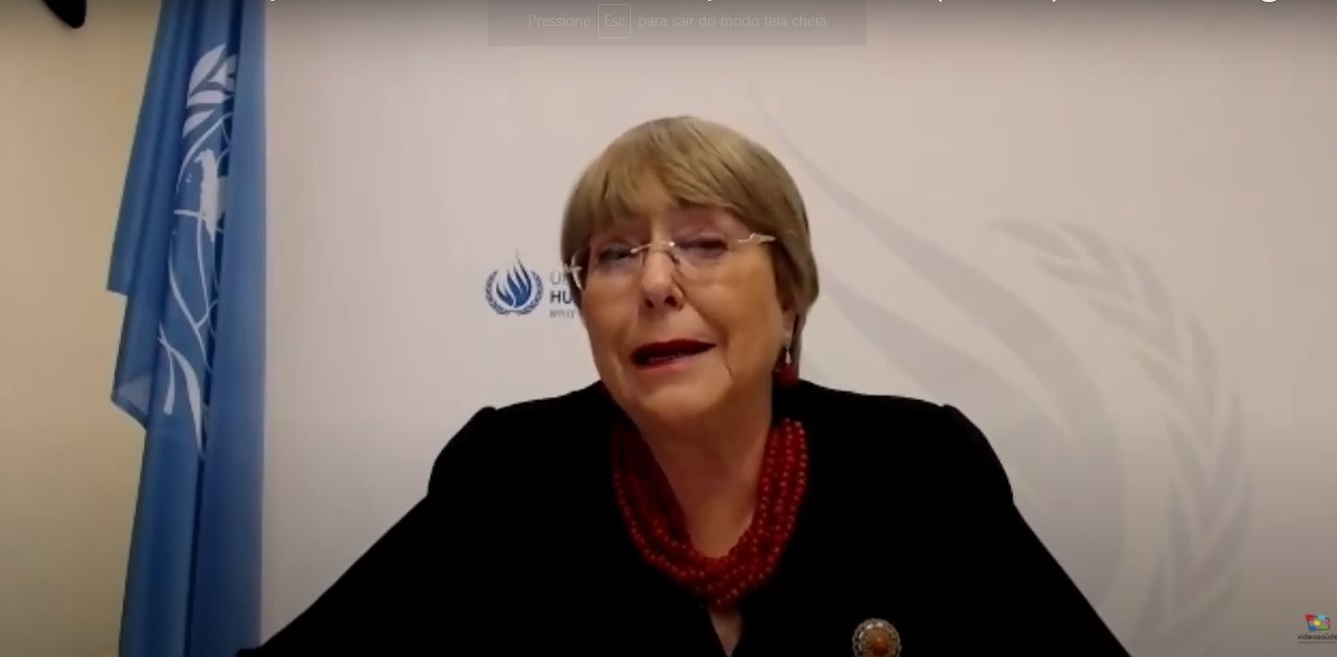
“Those who were already more vulnerable before, such as women, were those most affected by the pandemic", said Bachelet (Photo: YouTube reproduction)
With the theme The UN Human Rights agenda and the pandemic, the event was also attended by Nísia Trindade Lima, Fiocruz president; Tlaleng-Mofokeng, UN Special Rapporteur on the right to health; Lawrence Gostin, professor at the University of Georgetown, in Washington; and Armando de Negri, a researcher of Cris/Fiocruz. Mediated by Paulo Buss, coordinator of Cris and president of the Latin American Alliance for Global Health (Alasag), a co-sponsor of the event, the virtual seminar showed how health and human rights walk hand in hand.
For the former Chilean president, rarely have we seen such strong evidence of the value of human rights, of the right to social protection and to public health, such as we are now observing during this COVID-19 pandemic. Although Latin America and the Caribbean accounted for 8.6% of the world’s population in 2020, up to last December the region was responsible for 18.6% of deaths. In addition, the disease has increased rates of poverty and of extreme poverty, which have jumped from 30.5% to 33.7% and from 11.3% to 12.5%, respectively, between 2019 and 2020.
“Those who were already more vulnerable before, such as women, indigenous populations, black people, the homeless, LGBTIQ, and refugees, were those most affected by the pandemic. This is shocking, but not surprising”, noted Bachelet, who was the first person in charge of UN Women. “Covid-19 highlighted a veritable pandemic of inequalities, in the world and in our region. Governments must act to guarantee means of subsistence and access to services. They must act so these people do not lose their homes and become even more exposed to the virus. Human rights must be in the center of the crisis response and recuperation.”
In February, the UN High Commissioner for Human Rights presented a report on the global impact of the pandemic, showing a failure in tackling structural causes: neither rich nor poor countries were able to meet the basic needs of their populations. Today’s problems are the result of years of insufficient investment in public health and sanitary structure, she highlights. For Bachelet, the way out of this crisis requires unprecedented cooperation, with the participation of the society as a whole.
While the word “inequality” was heard many times during the event, so was “solidarity”. “This, however, does not mean States are responsible for guaranteeing the right to health and to life”, the High Commissioner stated. “Health is an indispensable right because all other rights depend on it”, she added.
‘A vaccine against hunger’
Bachelet also emphasized that “any vaccine against COVID-19 must be distributed as a global public asset. The sanitary crisis and the socioeconomic crisis must be dealt with together. There cannot be a necessary choice between health and economy. How can we ask someone to wash their hands often when they have no access to water? How can we tell them to keep social distancing when they live in crowded places?
She stressed that, in addition to the climate issue, the pandemic is the most serious threat to humanity we have seen in generations. But for her, the situation offers a choice: either fight to return to a “supposed normality”, which may worsen inequalities, or choose to leave this crisis behind in a better fashion. The way to do this, she says, is to use human rights as a foundation: “creating a new social contract” that includes an opportunity for all, prioritize health, eliminate discriminations, and incentivize public participation in the elaboration of more effective policies.
“This is not a crisis that can be faced with denial and disinformation. Human rights are the acknowledgment that each of us has the right to live with dignity”, she says. “Human rights are our vaccine against hunger.”
Bachelet also drew attention to the lack of disaggregated data, which prevents the possibility of correlating vulnerable groups. Without this identification, she says, it becomes more difficult to define public policies, and the risk of leaving people behind is higher. As the next speaker, Nísia Trindade Lima highlighted the work of Fiocruz Bahia, whose Center of Data Integration defined an index to measure inequalities.
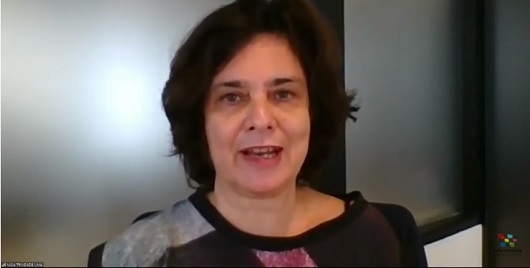
“Here in Brazil, although we see vaccination as an important strategy, it must be combined with other public health strategies", said Nisia Trindade Lima
The Fiocruz president emphasized that “right now, listening to Michelle Bachelet has special importance for us, at such a grave moment”. “Here in Brazil, although we see vaccination as an important strategy, it must be combined with other public health strategies and social policies so we can leave this crisis behind”, she says, highlighting the role played by Fiocruz in multiple fields. “We work in the field of surveillance as well as with vaccines, and this week we should be delivering 5 million doses made in a partnership with AstraZeneca and Oxford”, Trindade Lima said, reminding the audience that the Foundation is seeking sovereignty regarding the production of ingredients.
Access to vaccines
South-African physician Tlaleng-Mofokeng, special rapporteur of the UN Human Rights Council on the Right to Health and with an extensive background in women’s health and reproductive health, said the pandemic has emphasized North-South inequalities, and that she felt very dispirited to see how few of the recommendations of the group had been adopted. She also criticized “vaccine nationalization”, which has made it difficult for several countries to access COVID-19 vaccines. “Access to the vaccine is a human right”, she said. “We need to look into these abuses. They are violations and proof of the relationships of power between colonizing and colonized nations”.
“It has been said many times: the virus knows no international boundaries, but those with power in their hands have decided to rewrite the inequalities of colonialism”, said Mofokeng. “Nobody can be successful unless everyone is protected”.
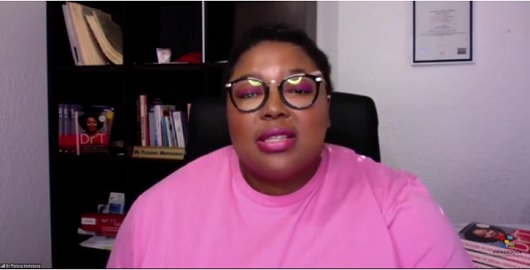
“Nobody can be successful unless everyone is protected”, said Tlaleng-Mofokeng
The subject was also taken up by professor Lawrence Gostin, a specialist in Global Health Law. He mentioned that the United States, Canada and the European Union are acquiring more doses of the COVID-19 vaccine than they need, in a sort of dismantling of global solidarity in which even Covax, a mechanism for the distribution of vaccines created by the World Health Organization (WHO), cannot get its hands on enough doses. “While rich countries are almost back to their normal life, with their economies recovering, poorer countries may take years until they can achieve this”, he said.
For Gostin, director of the WHO Collaborating Center on National and Global Health Law, when the history of this pandemic is written in the future, it will mention “a failure when it comes to human rights”. He mentioned the suppression of information early on in the pandemic, world leaders whose response was not based on science and public health, and others who used emergency powers to approve laws against their rivals.
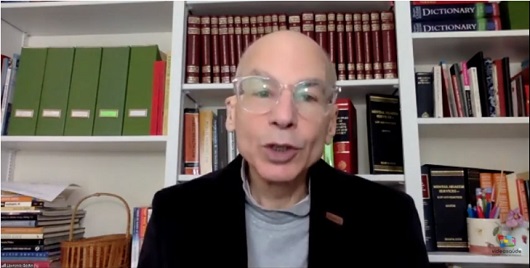
Gostin defends a new architecture of global health using human rights as a foundation
Gostin also emphasized the need to write a different history on an upcoming pandemic, defending a new “architecture of global health using human rights as a foundation”. Among his proposals for the current crisis is the suggestion that rich people set aside 2% of their COVID-19 budget for global help, which would amount to more than 10 trillion dollars, and that G-20 decree a moratorium of the debt of low- or medium-income countries.
Right to development
Armando De Negri, director of Preventive Medicine in the Political Area and Health System and executive coordinator of the World Health Forum for Social Movements, talked about the issue in the context of the right to development, a movement that originated in the Conference of Bandung, in Indonesia, in 1955, when countries of the South stated their non-alignment policy with the two large blocs that arose from the Second World War. Those demands focused on development that allowed them to leave that colonial and post-colonial position. “Right to development is a sort of revindication of a set of rights”, he explained. “If the right to health is not supported by the right to development, it will not be ensured”, he said.
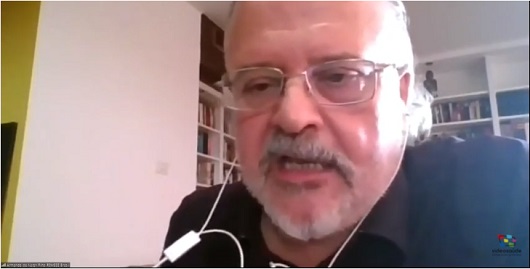
For De Negri, pandemic reflects an asymmetry of power
It took more than 20 years to come up with the two conferences, divided in Civil and Political Law and Economic, Social and Cultural Law, until a Declaration of the Right for Development was achieved in 1986, bringing these two dimensions together. For De Negri, the issue creates discomfort among powers, because it determines that a country is also responsible for the impact of its policies on populations outside of its jurisdiction. For him, today the pandemic reflects this asymmetry of power in which less developed countries will only have access to an effective vaccine coverage by 2024, if the current roll out is maintained.
The event, which was broadcast through YouTube and is available online. Cris/Fiocruz has organized 25 seminars, with the participation of more than 150 specialists. Its online material has been view by more than 30,000 people. “We hope it can later be used in classrooms, by students, teachers and managers, as well as by health workers and by those in the fields of diplomacy and international relations”, said Paulo Buss, who coordinates Cris, was Fiocruz president twice, and is currently president of Alasag.




